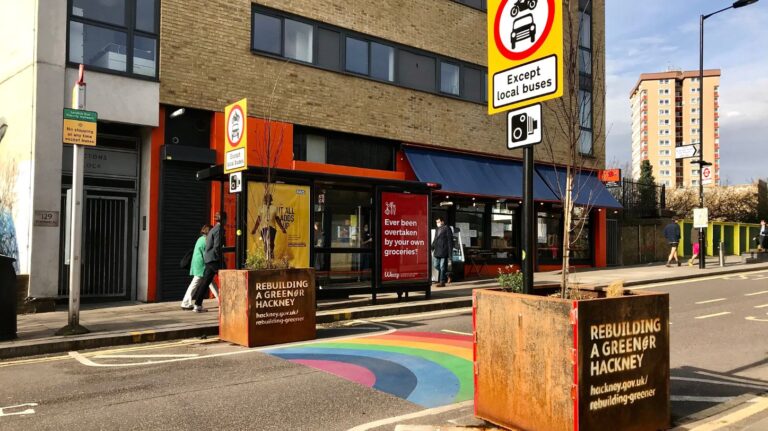UK prime minister Rishi Sunak has ordered a national review of low traffic neighbourhoods (LTNs) in England as part of an assessment of traffic calming schemes.
LTNs are designed to deter car use and congestion and promote active travel, such as walking and cycling, by limiting cars’ access to certain roads. They are often implemented to stop drivers using certain roads as through-routes, also known as rat-runs.
Speaking to The Telegraph, Sunak promised drivers he was on their side and that “the vast majority of people in the country use their cars to get around and are dependent on their cars…I just want to make sure people know that I’m on their side in supporting them to use their cars to do all the things that matter to them.”
Sunak’s comments follow the Conservatives’ narrow victory in Uxbridge and South Ruislip earlier this month, the former constituency of ex-prime minister Boris Johnson, which the winning Tory candidate Steve Tuckwell described as a “referendum on the ULEZ (Ultra Low Emission Zone)”.
The ULEZ expansion has been pushed forward by London’s Labour mayor, Sadiq Khan. It has since become a key focus in the debate on green policy between the Labour and Conservative parties.
Last week, the High Court dismissed five Conservative-led councils’ legal challenge to the London-wide expansion of the ULEZ.
Today [31 July] Sunak also announced hundreds of new oil and gas drilling licences for the North Sea, which he said would help the UK reach its net zero carbon emissions goals.
What’s more, a letter published yesterday from 43 Conservative MPs and peers has urged the prime minister to delay the ban on the sale of new petrol and diesel cars and push it from the current deadline of 2030 to 2035.
However, there has been backlash from the transport sector to the prime minister’s recent comments.
Cllr Linda Taylor, the Local Government Association’s transport spokesperson, said: “Councils are on the side of all road users and residents, and are working hard to tackle congestion, make our air cleaner and improve the quality of life in their communities.
“We want to work with government to achieve this…However, it is councils who are best placed to make decisions with their communities in improving the lives of people and businesses.
“As democratic organisations they continually review all kinds of services and schemes based on local circumstances. Therefore, a national review is unnecessary.”
Adding to this, John Nuutinen, CEO of Mobility-as-a-Service (MaaS) provider SkedGo, said: “This is a huge step backwards…Scaling back Low Traffic Neighbourhoods sends a clear signal to motorists that there’s no need to change your ways, when instead, we should all be thinking hard about our transport choices.”
Details of the national review are set to be provided in due course.





